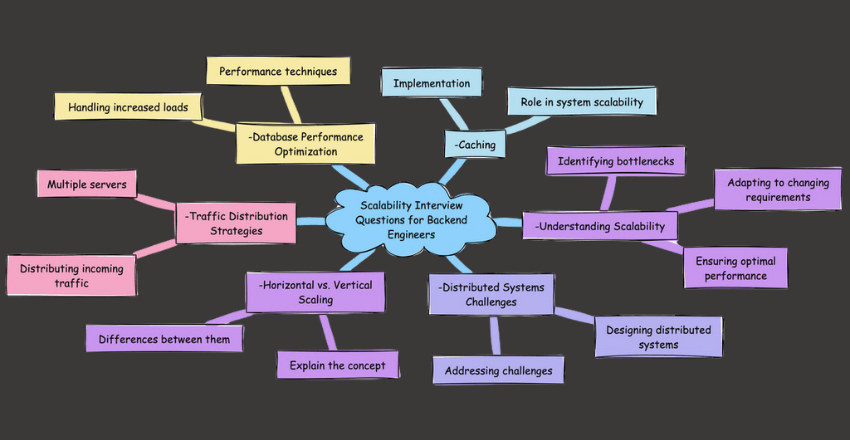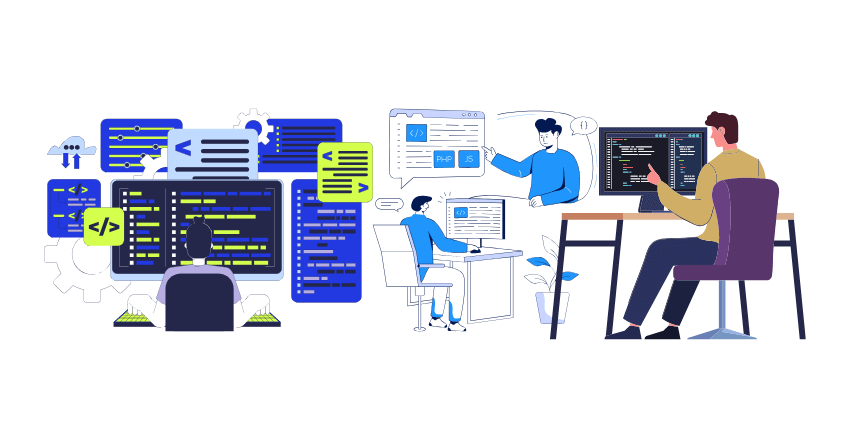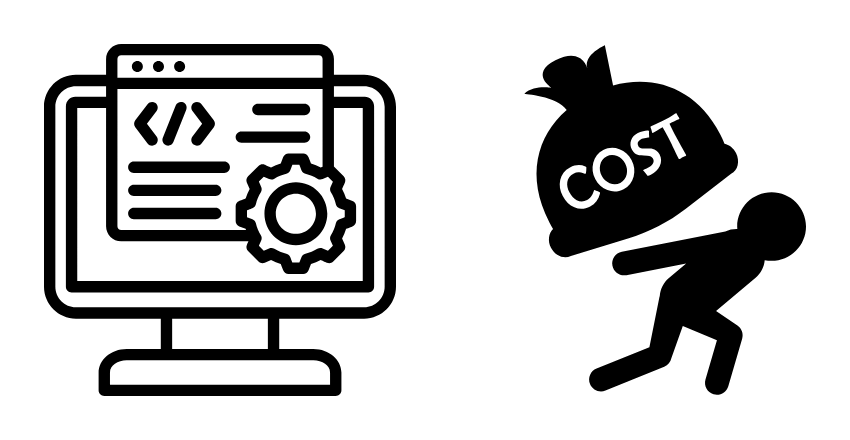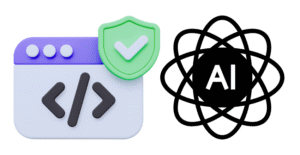Backend engineer interview questions reveal critical thinking and problem-solving skills. They test knowledge in databases, APIs, and server-side logic.
As a hiring manager, asking the right interview questions is crucial to identify top backend engineer candidates. Backend interviews focus on assessing candidates’ understanding of server-side technologies, databases, and caching. By asking the right questions, you can gain valuable insights into a candidate’s technical proficiency and problem-solving abilities, ultimately helping you make informed hiring decisions.
Backend Engineer Interview Questions Overview
The backend engineer interview questions cover a wide range of topics, including general knowledge, API design, database optimization, scalability, security, testing, and deployment. These questions are designed to evaluate candidates’ understanding of server-side technologies and their ability to solve complex backend challenges.
By asking the right questions, hiring managers can identify top candidates who possess the necessary skills and knowledge to excel in backend development roles.
These interview questions are categorized into different sections to provide a comprehensive assessment of the candidates’ abilities. The general questions cover fundamental backend concepts such as the purpose of the backend, caching mechanisms, asynchronous programming, and closures.
API questions focus on assessing candidates’ knowledge of API design principles, RESTful and SOAP APIs, and error handling.
The database questions evaluate candidates’ proficiency in designing, optimizing, and querying databases, including database optimization techniques and NoSQL databases. Scalability questions assess candidates’ understanding of scaling backend systems and designing distributed systems.
Security questions evaluate candidates’ knowledge of securing backend systems, authentication, and authorization. Testing questions focus on the candidates’ ability to write effective test cases and ensure the quality of backend code. Deployment questions aim to assess candidates’ understanding of the deployment process, continuous integration, and deployment automation.
General Interview Questions for Backend Engineers
General interview questions for backend engineers delve into the purpose of the backend, caching, asynchronous programming, and closures. These questions are designed to assess candidates’ understanding of fundamental backend concepts.
1. What is the purpose of the backend in a web application?
The backend is responsible for processing requests, handling data storage and retrieval, and ensuring the smooth functioning of the application’s server-side operations.
2. What is caching, and why is it important?
Caching is the process of storing frequently accessed data in a temporary storage location to reduce the load on the server and improve response times. It is important because it enhances performance and scalability.
3. How does asynchronous programming work?
Asynchronous programming allows tasks to be executed independently of the main program flow. It improves performance by enabling concurrent execution of multiple operations, such as database queries or API calls, without waiting for each operation to complete.
4. What are closures in programming?
Closures are functions that have access to variables from their outer scope, even after the outer function has finished executing. They are powerful tools for encapsulating data and creating private variables in JavaScript.
By asking these general interview questions, hiring managers can gain insight into a candidate’s knowledge of backend fundamentals.
Summarized Table: General Interview Questions for Backend Engineers
| Question | Description |
|---|---|
| 1. What is the purpose of the backend? | Assess understanding of backend role in web applications |
| 2. What is caching, and why is it important? | Evaluate knowledge of caching mechanisms and their benefits |
| 3. How does asynchronous programming work? | Determine familiarity with asynchronous concepts and their applications |
| 4. What are closures in programming? | Assess understanding of closures and their use cases |
API Interview Questions for Backend Engineers

API interview questions for backend engineers assess candidates’ understanding of API design principles, RESTful and SOAP APIs, and error handling. These questions help evaluate candidates’ knowledge of designing efficient and robust APIs, which are essential for building scalable and interoperable software systems.
Here are some common API interview questions:
- Explain the concept of API design and its importance in backend development.
- What is the difference between RESTful and SOAP APIs? Provide examples of when each one is suitable.
- How do you handle errors and exceptions in API design? Can you provide an example?
- What are some best practices for versioning APIs?
- Describe the steps involved in authentication and authorization processes for API security.
These questions are designed to assess candidates’ technical knowledge, problem-solving skills, and ability to apply API design principles in real-world scenarios. The answers should demonstrate their understanding of RESTful and SOAP API principles, error handling approaches, and security measures to protect sensitive data.
Remember, the purpose of these questions is not to stump the candidates, but to gain insights into their expertise and experience in API development. It’s important to allow candidates to explain their thought processes and provide detailed answers that showcase their understanding of API design and related concepts.
| API Interview Questions | Key Insights |
|---|---|
| How do you design APIs for scalability? | Assesses candidates’ understanding of designing APIs that can handle high traffic and scale efficiently. |
| Explain the concept of rate limiting in API design. | Evaluates candidates’ knowledge of implementing rate limiting mechanisms to prevent abuse and ensure fair usage of the API. |
| What are the advantages and disadvantages of using JSON and XML in API communication? | Tests candidates’ understanding of data interchange formats and their pros and cons in different scenarios. |
Remember to tailor your interview questions based on your specific requirements and the technologies used in your organization. By asking relevant and thought-provoking API questions, you can identify top backend engineer candidates who have the skills and knowledge needed to contribute to your team’s success.
Database Interview Questions for Backend Engineers
Database interview questions for backend engineers cover topics such as database optimization techniques and working with NoSQL databases. In order to assess a candidate’s proficiency in designing, optimizing, and querying databases, it is essential to ask the right questions during the interview process.
Here are some key questions to consider when interviewing backend engineers:
- What are the different types of database optimization techniques and how do they contribute to improving performance?
- Can you explain the concept of indexing in databases? Why is it important and how can it be optimized?
- Have you worked with NoSQL databases? If so, what are the main differences between NoSQL and relational databases?
- How would you handle database sharding for a large-scale application? Can you explain the benefits and challenges of sharding?
- What strategies would you employ to ensure data consistency and integrity in a distributed database system?
By asking these questions, you can gauge a candidate’s knowledge of database optimization techniques, familiarity with NoSQL databases, and problem-solving abilities when it comes to handling large-scale applications and ensuring data consistency.
Example Database Interview Question:
| Question | Answer |
|---|---|
| What are the different types of database optimization techniques and how do they contribute to improving performance? | There are several database optimization techniques, including indexing, query optimization, caching, and denormalization. Indexing improves query performance by creating data structures that allow for faster data retrieval. Query optimization involves analyzing and optimizing query execution plans to minimize resource usage. Caching stores frequently accessed data in memory to reduce database load. Denormalization involves duplicating data to eliminate the need for joins and improve query performance. |
| Can you explain the concept of indexing in databases? Why is it important and how can it be optimized? | Indexing is a technique used to improve query performance by creating data structures that allow for faster data retrieval. It is important because it allows queries to quickly locate the desired data without scanning the entire table. Indexing can be optimized by choosing the right columns to index, avoiding over-indexing, and regularly analyzing and optimizing index usage. |
| Have you worked with NoSQL databases? If so, what are the main differences between NoSQL and relational databases? | Yes, I have experience working with NoSQL databases. The main differences between NoSQL and relational databases include schema flexibility, scalability, and data modeling. NoSQL databases allow for schema-less data, making it easier to handle unstructured or rapidly changing data. They are also designed to scale horizontally, allowing for increased performance and storage capacity. Additionally, NoSQL databases use different data modeling techniques, such as document or key-value stores, compared to relational databases that use structured tables and SQL queries. |
| How would you handle database sharding for a large-scale application? Can you explain the benefits and challenges of sharding? | For large-scale applications, database sharding can be implemented to horizontally partition data across multiple databases or servers. It offers benefits like improved performance, increased storage capacity, and fault tolerance. However, it also introduces challenges such as maintaining data consistency across shards, load balancing, and managing distributed queries. Sharding strategies can include range-based sharding, hash-based sharding, or a combination of both. |
| What strategies would you employ to ensure data consistency and integrity in a distributed database system? | To ensure data consistency and integrity in a distributed database system, strategies such as two-phase commit (2PC), eventual consistency, and conflict resolution can be used. Two-phase commit ensures that all involved nodes agree on committing or aborting a transaction, preventing data inconsistencies. Eventual consistency allows for temporary inconsistencies that are eventually resolved. Conflict resolution techniques like timestamps or vector clocks can be used to resolve conflicts when updates occur on multiple nodes simultaneously. |
Scalability Interview Questions for Backend Engineers

Scalability interview questions for backend engineers focus on scaling backend systems and designing distributed systems for optimal performance. As companies continue to grow and handle larger amounts of data, it is crucial for backend engineers to have a strong understanding of scalability principles.
When interviewing candidates for backend engineering roles, it is important to assess their knowledge of various scalability techniques and their ability to design systems that can handle increasing loads.
Some common scalability interview questions include:
- Explain the concept of horizontal scaling and how it differs from vertical scaling.
- What are some strategies for distributing incoming traffic across multiple servers?
- How can you optimize database performance to handle increased loads?
- Describe the role of caching in improving system scalability.
- What are the challenges of designing distributed systems, and how can you address them?
By asking these questions, you can evaluate a candidate’s understanding of scalability principles, their ability to identify potential bottlenecks, and their knowledge of technologies and techniques that can be used to ensure optimal performance in distributed systems.
It is important to remember that scalability is not just about handling increases in traffic and data volume, but also about designing systems that can adapt to changing requirements and continue to perform well.
Backend engineers who can effectively address scalability challenges are invaluable assets to any organization.
| Question | Answer |
|---|---|
| Explain the concept of horizontal scaling and how it differs from vertical scaling. | Horizontal scaling involves adding more servers to distribute the load, while vertical scaling involves increasing the resources (such as CPU and RAM) of a single server. |
| What are some strategies for distributing incoming traffic across multiple servers? | Strategies include load balancing using techniques like round-robin, least connection, or IP-hash, as well as using a reverse proxy or content delivery network (CDN). |
| How can you optimize database performance to handle increased loads? | Optimizations can include indexing, denormalization, caching, database partitioning, and sharding. |
| Describe the role of caching in improving system scalability. | Caching involves storing frequently accessed data in memory to reduce the load on backend systems, resulting in faster response times and improved scalability. |
| What are the challenges of designing distributed systems, and how can you address them? | Challenges include ensuring consistency, handling network partitions or failures, and dealing with increased complexity. Solutions may involve using consensus algorithms, replication, or fault-tolerant designs. |
Security Interview Questions for Backend Engineers

Security interview questions for backend engineers assess candidates’ knowledge of backend security, authentication mechanisms, and authorization processes. It is crucial for backend developers to have a strong understanding of how to protect sensitive data and ensure the integrity of a system.
Here are some common security questions that can help evaluate a candidate’s expertise in this area:
- “Can you explain the concept of authentication and how it is implemented in backend systems?” – This question evaluates the candidate’s understanding of the process of verifying users and granting access to protected resources.
- “What is authorization, and how is it different from authentication?” – Understanding the distinction between authentication and authorization is essential, as authorization determines what actions a user can perform after they have been authenticated.
- “How can you prevent common security vulnerabilities, such as cross-site scripting (XSS) and SQL injection?” – This question tests the candidate’s knowledge of best practices for securing backend systems, demonstrating their understanding of potential attack vectors and the measures to mitigate them.
- “What is a secure session management technique, and why is it important?” – Session management is critical for maintaining user state and preventing unauthorized access. Evaluating a candidate’s knowledge of secure session management will help determine their ability to implement robust security measures.
When interviewing backend engineers, it is important to assess their understanding of security principles and their ability to implement secure coding practices.
The questions above provide a starting point for evaluating a candidate’s knowledge and expertise in backend security. Remember to tailor the questions to the specific needs of your organization and the technologies in use.
FAQ
What are common backend engineer interview questions?
Interviewers often ask about RESTful APIs, SQL vs. NoSQL databases, and handling server-side errors. Expect coding challenges on data structures and algorithms. Understanding of cloud services like AWS is also a plus.
How should I prepare for system design questions?
Understand the basics of distributed systems. Be ready to discuss scalability, load balancing, and database sharding. Practice by designing systems you know well, like a messaging app or an e-commerce site.
What kind of coding problems are typical in these interviews?
Problems often involve data manipulation, such as sorting arrays or managing databases. Also, expect questions on optimizing algorithms and implementing solutions efficiently. Knowing various programming paradigms and patterns is helpful.
External Sources
https://blog.hubspot.com/website/backend-interview-questions
https://anywhere.epam.com/en/blog/top-18-backend-developer-interview-questions-answered
https://www.testgorilla.com/blog/backend-developer-interview-questions/












